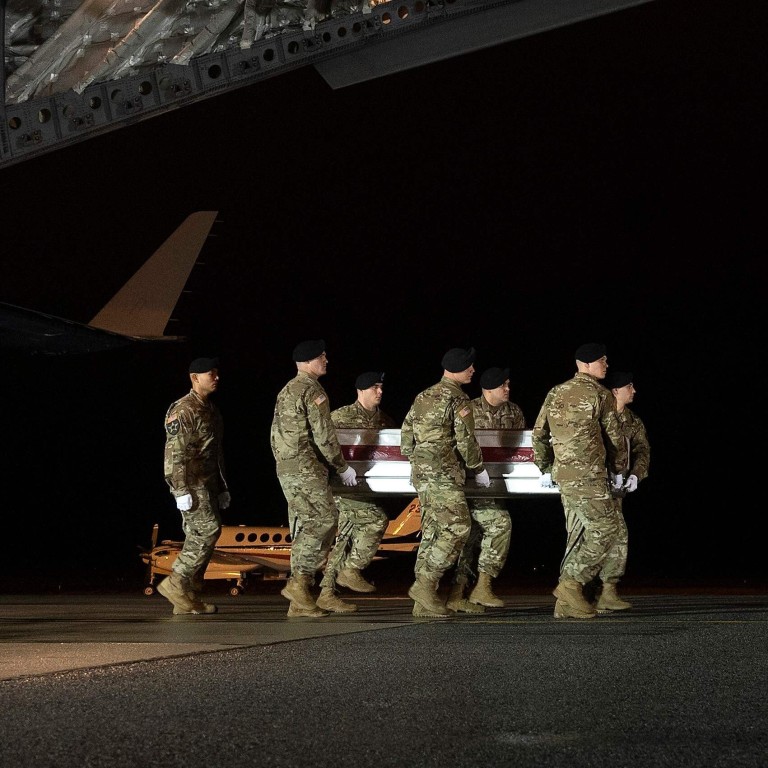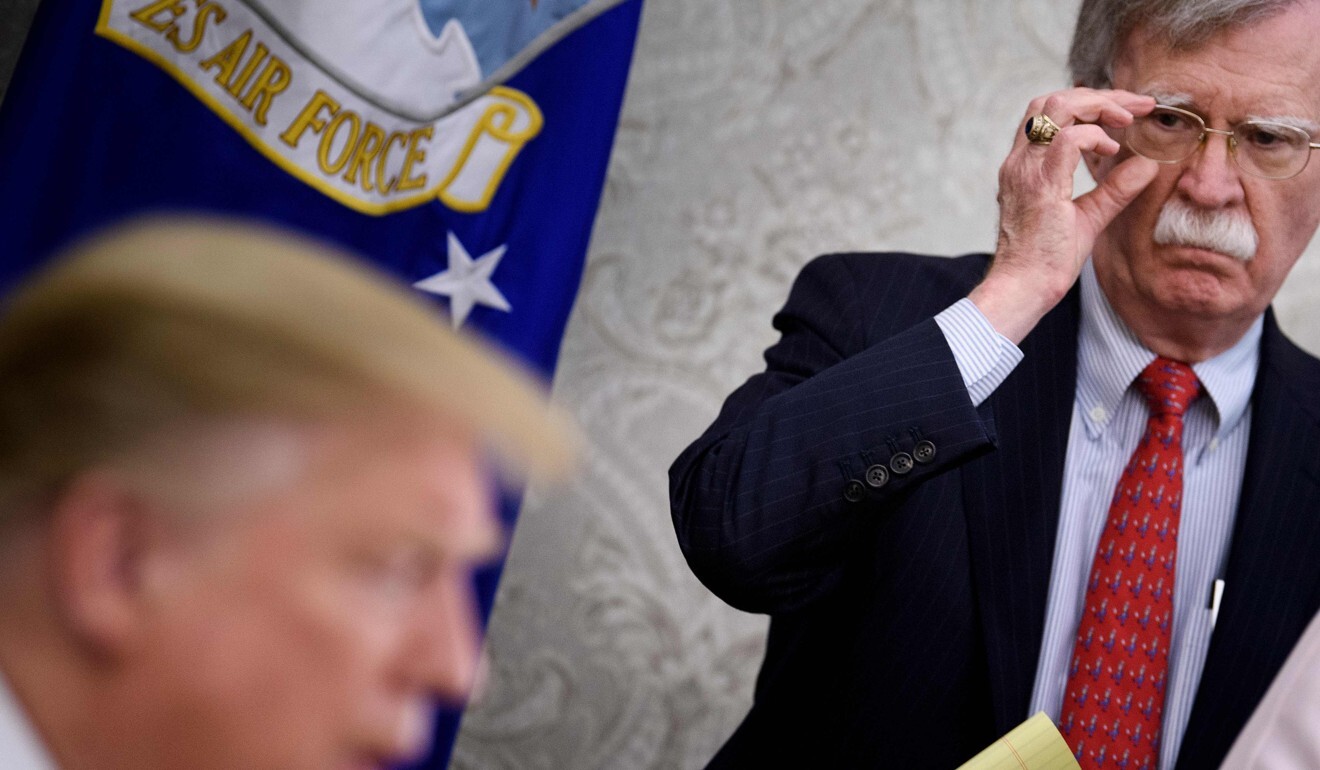
White House aware of Russian bounties on US troops in 2019, sources say
- Pressure builds on Trump to explain how his administration responded to an apparent lethal threat against US forces
- Former adviser John Bolton reportedly told colleagues that he briefed Trump on the matter in March 2019
Top officials in the White House were aware in early 2019 of classified intelligence indicating Russia was secretly offering bounties to the Taliban for the deaths of Americans, a full year earlier than has been previously reported, according to US officials with direct knowledge of the intelligence.
The assessment was included in at least one of President Donald Trump’s written daily intelligence briefings at the time, according to the officials. Then-national security adviser John Bolton also told colleagues he briefed Trump on the intelligence assessment in March 2019.
Trump: report about secret Russian bounties on US troops isn’t credible
Bolton declined to comment about the claim he had briefed Trump about the matter in 2019. On Sunday, he suggested to NBC’s Meet the Press that Trump was claiming ignorance of Russia’s provocations to justify his administration’s lack of a response.
“He can disown everything if nobody ever told him about it,” Bolton said.

Associated Press reported Sunday that concerns about Russian bounties were also included in a second written presidential daily briefing earlier this year and that current national security adviser Robert O’Brien had discussed the matter with Trump. O’Brien denies he did so.
The revelations cast new doubt on the White House’s efforts to distance Trump from the Russian intelligence assessments.
The president is known for not regularly reading the daily brief, preferring to rely on conservative media reports on the day’s big issues – but he is reportedly orally briefed by intelligence officials up to three times a week.
US, Taliban sign historic deal to end war in Afghanistan, withdraw US troops
Crucially, the officials told the The New York Times the Russia assessment was considered sufficiently serious and credible to include in a May 4 article in the CIA’s classified World Intelligence Review, its flagship intelligence product.
The White House briefed a small group of Republican lawmakers on its position Monday but top congressional Democrats have demanded that all members of Congress be briefed by the intelligence community.
“The questions that arise are: was the president briefed, and if not, why not, and why was Congress not briefed,” House Speaker Nancy Pelosi said in a letter to Director of National Intelligence John Ratcliffe and CIA director Gina Haspel.
The Times previously reported that US intelligence officers and special forces in Afghanistan began raising the alarm as early as January, and that the National Security Council (NSA) held an inter-agency meeting in late March to discuss possible responses – but the White House didn’t authorise any action.
“I am disgusted by Trump’s incompetence,” tweeted Tammy Duckworth, a former US Army helicopter pilot and combat veteran who is now a Democratic senator from Illinois.
“He either didn’t know that Russia was offering bounties for killing American troops or didn’t care enough to remember a briefing that told him. Neither is acceptable for a Commander in Chief.”
Since The Times first broke the story on Friday, several American and British media outlets have reported the US intelligence conclusion that Russia offered cash incentives for dead US troops in Afghanistan.
The mushrooming scandal comes with Trump trying to withdraw troops from the conflict-torn country – one of the Taliban’s key demands – and end America’s longest war.
Two US troops killed, six wounded in possible insider attack in Afghanistan
Trump on Sunday denied having been briefed on the matter, as the reporting renewed questions about his reluctance to confront Russia over behaviour that, if accurate, would represent a serious national security challenge.
“Intel just reported to me that they did not find this info credible, and therefore did not report it to me or @VP,” he tweeted.
But even in Republican ranks, there were expressions of concern at the gravity of the allegations.
“If intelligence reports are verified that Russia or any other country is placing bounties on American troops, then they need to be treated as a state sponsor of terrorism,” said Thom Tillis, a Republican on the Senate Armed Forces committee, on Twitter.
Ratcliffe and national security adviser Robert O’Brien condemned leaks to the media over the intelligence in statements late Monday.
“Because the allegations in recent press articles have not been verified or substantiated by the intelligence community, President Trump had not been briefed on the items,” O’Brien said.
“Nevertheless, the administration, including the National Security Council staff, have been preparing should the situation warrant action.”
The suggestion that unverified security is not given to the president has been mocked by officials in previous administrations including Barack Obama’s NSA spokesman Ned Price.
“And since when is Trump briefed only on fully verified information? After all, his team made sure to tell him about the outlandish claim that his predecessor wiretapped Trump Tower!” he tweeted.
Ratcliffe said unauthorised disclosures had jeopardised the effort to “ever find out the full story” behind the allegations.
Meanwhile the Pentagon said in a statement it had “no corroborating evidence” for the allegations.
Associated Press, Agence France-Presse and Bloomberg
